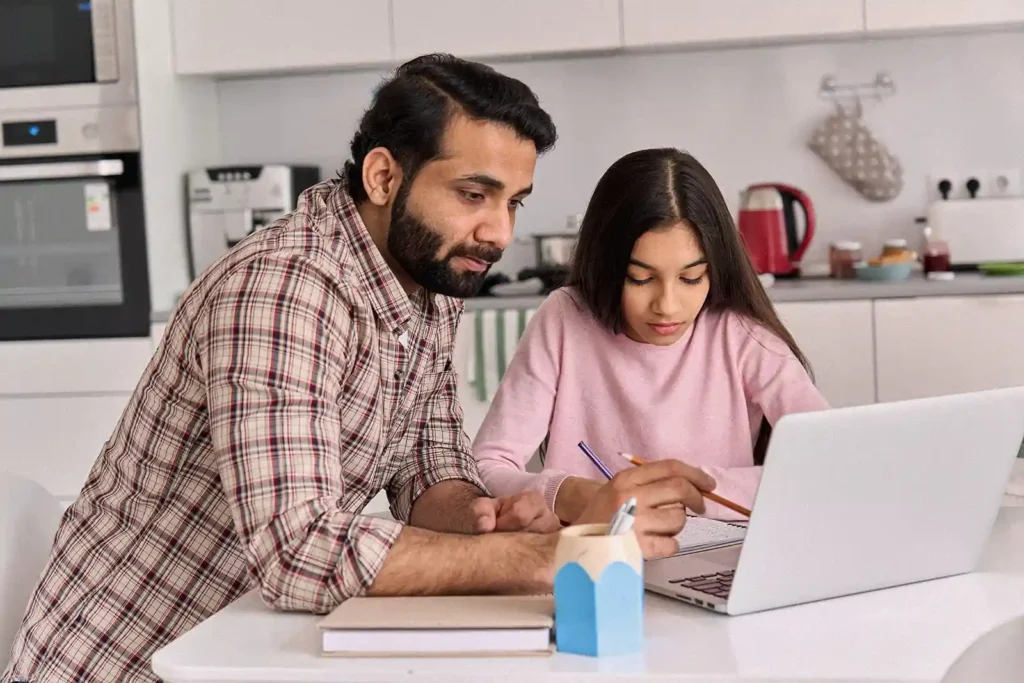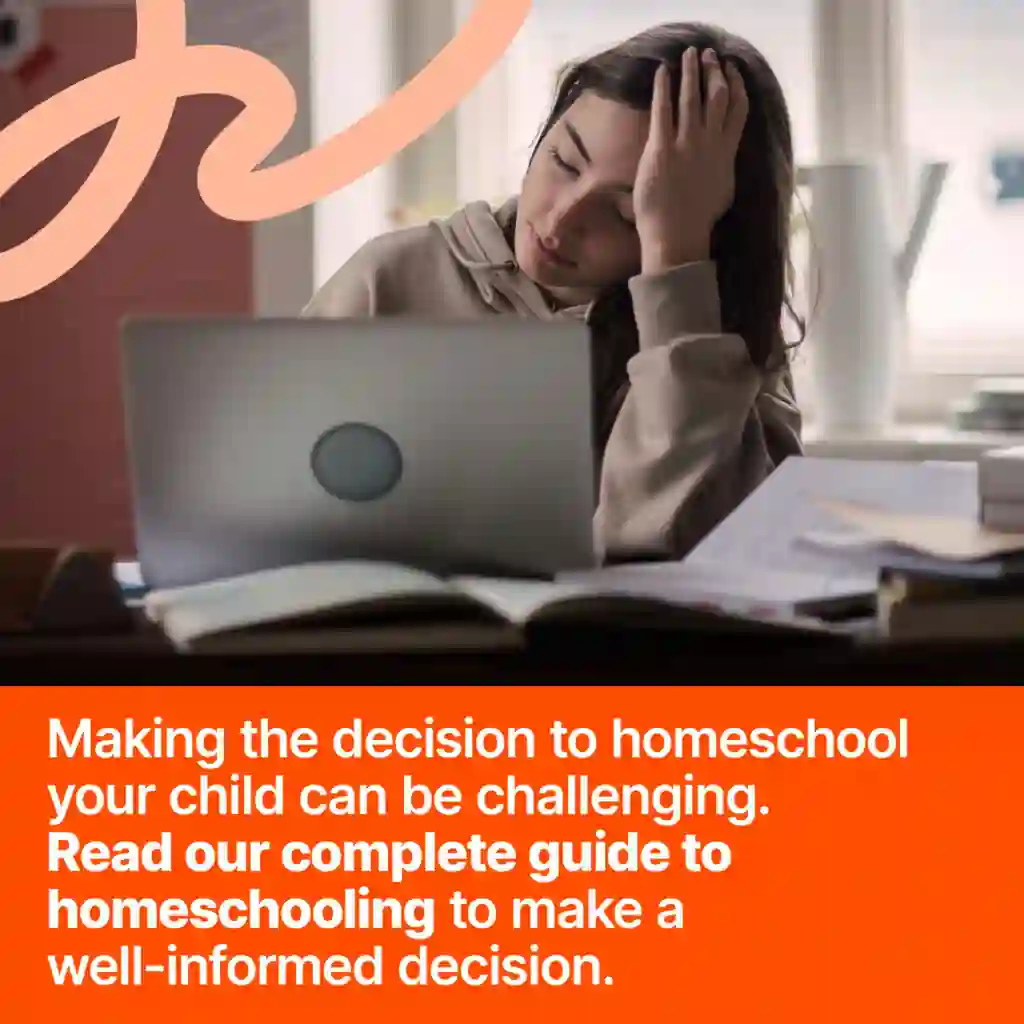Homeschooling, alternatively referred to as home education or elective home education (EHE), involves the instruction of school-aged children in their homes or various non-school locations. Homeschooling is growing in popularity, especially since the recent Coronavirus pandemic, where parents and guardians were left with no choice but to educate their children at home. Students from all Key Stages, including Key Stage 4, which is GCSE level and Key Stage 5, which represents A-levels, were suddenly having to learn and revise in a fully remote way. What wasn't expected, however, was how many people found it a beneficial experience.
Education is a fundamental aspect of any person's life, shaping their knowledge, skills, and future opportunities. In recent years, homeschooling has gained remarkable traction as an alternative to traditional schooling. This blog post explores the increasing popularity of home education and its potential impacts on children and society as a whole.
Popularity of Homeschooling
The numbers speak for themselves: homeschooling has experienced a significant surge in popularity. In the United Kingdom alone, the estimated number of homeschooled children has more than quadrupled from 34,000 in 2015 to a staggering 180,000 in 2023. This exponential growth demonstrates that more parents and guardians are opting for home education as an alternative approach to educating their children.
Yet, parents usually have many questions when they think about homeschooling. How should they start? Are there any downsides? What about exams? We look at those questions and more in our guide to homeschooling below. 👇
What is Elective Home Education?
The official name for homeschooling is ‘elective home education’ (EHE). The word ‘elective’ summarises everything: homeschooling is a choice. Although there are legal hoops to jump through, every parent has the right to teach their child at home.
That’s because, ultimately, parents and carers take responsibility for their child’s education. UK law says that children must be in full-time education from age 5. Most children then finish mandatory education in the school year that they turn 16 once they’re past compulsory school age. These rules apply to both homeschooling and traditional schools.
There are no government rules on the content of home education –they just say it must be efficient and suitable. This means that a child’s education must reach an appropriate level for their abilities. Unlike mainstream schools, homeschool teaching does not have to follow the national curriculum.

How Do I Start Homeschooling?
If you feel that homeschooling is the right choice for you, there are a few ways to begin:
- If your child isn’t yet five years old, you can start homeschooling when they are old enough.
- If your child is currently enrolled in a traditional school, you should write to the headteacher telling them that you plan to home-school. They should confirm the choice and take the child off their register.
- If your child has special educational needs, further permissions may apply – especially if they usually attend a special school.
- There are other exceptions in certain circumstances – for example, if your child has a school attendance order, you might not be able to home-school.
Once you begin home teaching, your local authority may make informal enquiries. These are home visits that make sure your child is getting a suitable education and that any special needs have been catered for.
Part-Time Home Education
Some children attend school part-time. This is called flexi-schooling and is an option for parents who may want their child to receive traditional teaching in some subjects. To get started, your child’s school must agree to flexi-teaching between both traditional and home education.

What Are the Benefits of Home Schooling?
There are various benefits to homeschooling.
Flexibility
Homeschooling lets you teach your children on your own terms. This might mean flexibility in the time of day you teach or in the location. If students study best at a certain time, parents can plan around it.
Personalised Curriculum
One of the disadvantages of traditional classrooms is that the curriculum is very rigid. When homeschooling, children have the chance to learn about things that really engage them – or that might be more useful to them personally, such as an additional language. It would also encourage your child to think independently and explore different avenues of research.
More Resources
Home-schooled children don’t have to share learning resources. They’ll get personal attention from their teacher while also accessing high-quality online learning resources. As they get close teacher attention, students can often complete home school lessons quicker than in traditional classes. If a homeschooled student has a problem, they can get immediate assistance. In a traditional classroom setting, they may have to wait their turn.
Safe Environment
In some cases, children may respond better to learning at home. This can be for several reasons, such as social anxiety, nerves, or bullying. If that’s the case, homeschooling can offer a safer and more protective environment for them to learn in.
Life Experiences
Many home-schooled children take more trips than traditional students. They can supplement their learning by visiting museums, churches, or historical sites. In this way, homeschooling can often give children more practical learning experiences.
Prioritising Family Life
The aftermath of the COVID-19 pandemic has brought about a shift in priorities, placing greater emphasis on family life. Many working parents have expressed regret over not being able to spend enough quality time with their children while they were growing up. As a result, homeschooling has emerged as a viable solution, offering parents the opportunity to actively participate in their children's education and witness their growth firsthand.
Are There Disadvantages to Home Schooling?
As with most things, there are also some potential downsides to consider:
- Homeschooling is a significant time sacrifice for parents. In many cases, parents get additional help from tutors or online learning providers.
- Many parents don’t have the formal qualifications of professional teachers. This is often overcome by parents carefully planning lessons or getting help.
- Some people feel that home-schooled children suffer from a lack of socialisation. In many cases, children should take other chances to meet friends like clubs and sports teams. Although interactive collaborations with other homeschooled students can offset this.
- Home schooling involves extra costs, such as exam entry fees and books.
Overall, parents can reduce many of the possible disadvantages of homeschooling with effort and careful planning.
What Curriculum Should I Use When Home Schooling?
The national school curriculum is inflexible. That can be a good and a bad thing. While it teaches children a broad range of subjects, it may also offer some less engaging topics. When homeschooling, you are free to design your own curriculum.
You might choose to follow traditional school lessons and curriculum closely. This can be a good idea if you like structure or plan on your child taking standard exams. However, as long as your child receives a suitable education, the home school curriculum is yours to design.
How Do Home School Students Sit Exams?
When homeschooling, you should arrange exams in advance. Your child doesn’t have to take standardised exams, but it’s usually a good idea for their future to get some formal qualifications. Children may be able to take exams at local schools and colleges with prior arrangements.
Many homeschoolers also choose to take formal exams, such as GCSEs and A-Levels, through online learning partners. This saves both the stress of finding an exam centre and arranging course teaching materials.
Learning From Home
More parents than ever are choosing to home-school. There are several benefits, but parents should take care to follow a quality curriculum and book exams early. In many cases, it’s beneficial to work with an online teaching provider. At Oxbridge, we offer internationally recognised qualifications with comprehensive course materials. Check our courses or contact us for more information.

